Amid a looming debt crisis, will China press the reset button on the BRI?
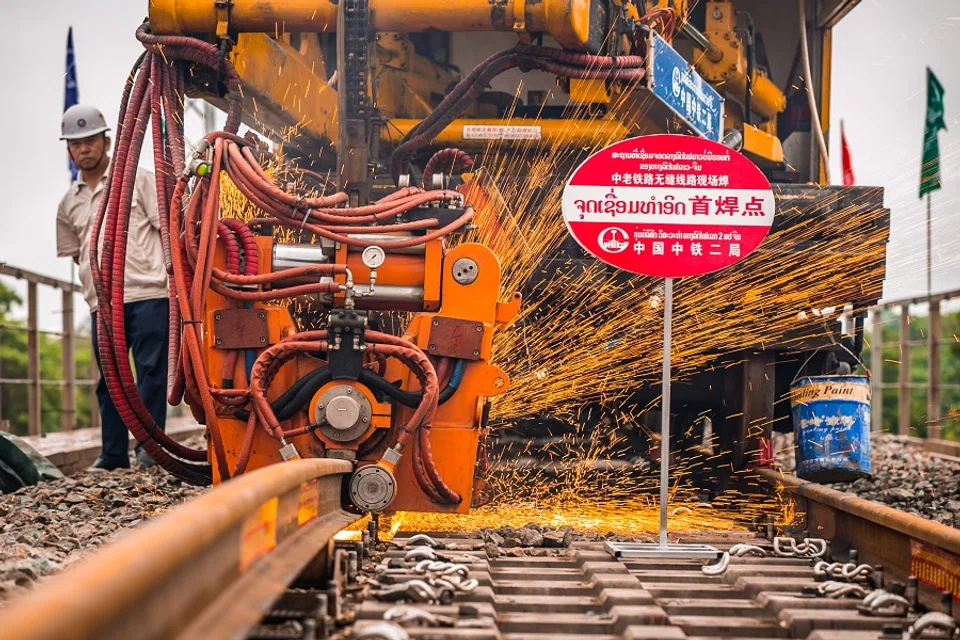
This March, a video with this scenario went viral: dozens of mask-clad Chinese migrant workers walked out of Haluoleo Airport in Kendari, Southeast Sulawesi, Indonesia, as a voice in the background said: "The whole plane is filled with coronavirus patients!"
While the creator of the video later publicly admitted that he had made up that line, the incident created a hooha in Indonesia nonetheless.
Anxious local residents protested and demanded the repatriation of the Chinese migrant workers. Taking such feedback into account, local officials rejected the entry of 500 Chinese migrant workers who were slated to work on a power station project in early May this year.
Some Belt and Road Initiative (BRI) projects have been delayed in Indonesia due to the impact of the pandemic, and local anti-Chinese sentiment has made the resumption of work even more difficult.
Xu Ningning, executive director of the China-ASEAN Business Council, told Lianhe Zaobao that such protests are commonplace in Indonesia as local residents think that the Chinese migrant workers have taken away their jobs. After the coronavirus outbreak, these sentiments were magnified and fuelled by some forces.
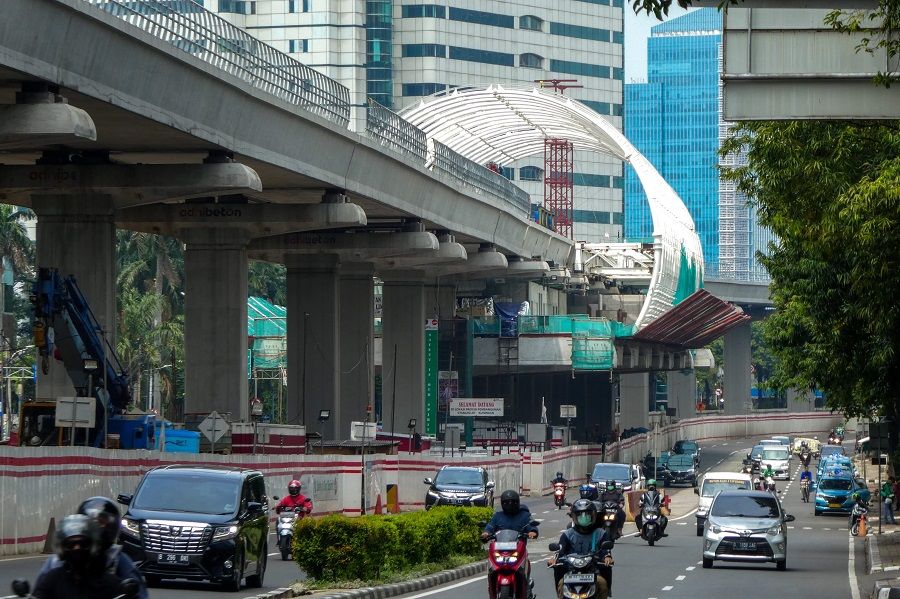
Some Belt and Road Initiative (BRI) projects have been delayed in Indonesia due to the impact of the pandemic, and local anti-Chinese sentiment has made the resumption of work even more difficult. Yet, this is just one of the setbacks that the BRI is facing following the global pandemic.
The global economy is in recession after Covid-19. Many BRI projects have come to a standstill as the host governments are either adjusting budgets, dealing with their inability to pay off their debts, or facing manpower and logistical challenges. The BRI, which aims to connect China and Central Asia, Middle East, Europe, Africa, and Southeast Asia, is in for a bumpy ride.
Saving grace: ASEAN highly supportive of regional interconnectivity
Xu said that in the ASEAN countries, Covid-19 preventive measures have blocked the supply of building materials for BRI projects and slowed down the return of Chinese workers who had gone home for their Chinese New Year breaks back in January. These factors have delayed the resumption of work in several BRI projects. In other cases, government officials of individual countries have been unwilling to resolve work resumption problems arising from the pandemic and have chosen to abandon the project altogether.
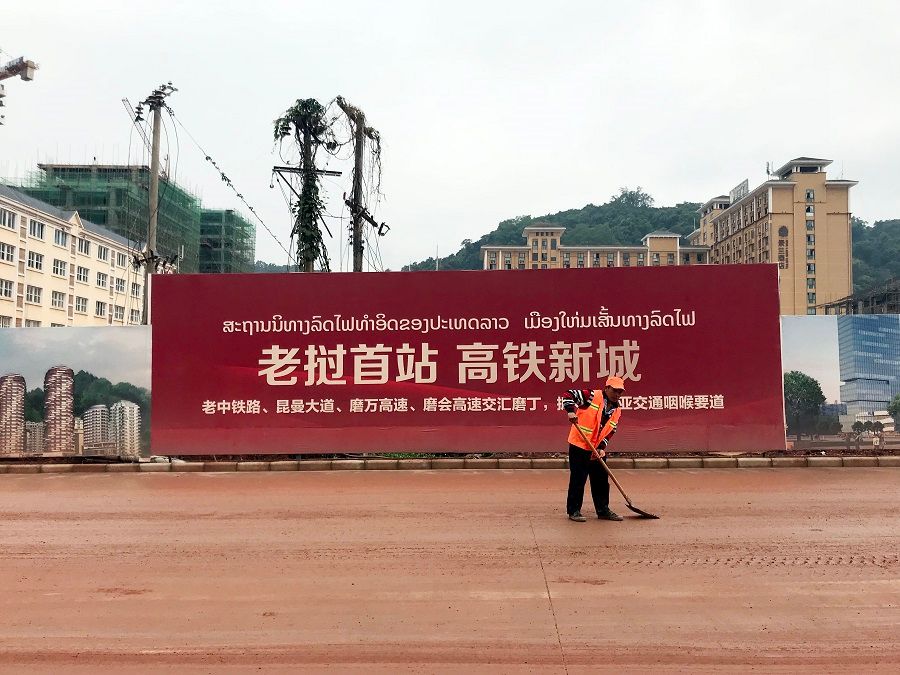
That being said, compared to other regions, ASEAN countries are very supportive of regional interconnectivity, said Xu. Thus, some projects such as the China-Laos railway - where preventive measures are implemented on-site - are progressing smoothly.
However, in some other countries, the pandemic has brought about more severe challenges to local BRI projects.
Global call for debt relief
From March this year, countries including Egypt, Bangladesh, Pakistan, and Tanzania have successively reported that they would cancel or delay the construction of BRI infrastructural projects. China has also been facing calls for debt relief, with many countries hoping to have their repayment requirements for related projects relaxed.
...as of 2017, countries have owed China more than US$5 trillion (S$6.9 trillion) in debt.
In the face of rising calls for debt relief, the G20 countries - including China - have agreed on a debt service suspension initiative for "the poorest countries". On 7 June 2020, China issued a white paper stating that it has started implementing the above-mentioned debt service suspension initiative, and has so far suspended debt repayment for 77 developing countries.
China did not make known the 77 countries involved or the amount of debt they owed. According to a report by German think tank Kiel Institute for the World Economy released last year, as of 2017, countries have owed China more than US$5 trillion (S$6.9 trillion) in debt. The top 50 countries that borrowed from China were mostly the smaller and poorer ones, with debts occupying 15% of their GDP in 2016.
Debt suspension from China may come with strings attached
While China is able to maintain friendly relations with the countries that had their debt repayment suspended, to the creditor and debtor nations, debt suspension does not solve the root of the problem at all.
Steve Tsang, director of the China Institute at the University of London's School of Oriental and African Studies, told us that debtor-nations have to keep in mind the crucial fact that the BRI is not a new Marshall Plan. "The Chinese government hopes that these debts and interests would eventually be repaid. This basic principle has not changed," he explained.
...in return for debt relief from China, some countries may also make China the trustee of its mines, ports, and other resources.
Others also warned countries applying for debt suspension to be mindful of violating other terms that were already agreed upon in their initial contracts with China.
An economist article recently noted comments by Carmen Reinhart, newly appointed chief economist of the World Bank, saying that China's banks require collateral security for 60% of their loans to developing countries, unlike members of the Paris Club of big sovereign lenders, which do not. It added that in return for debt relief from China, some countries may also make China the trustee of its mines, ports, and other resources.
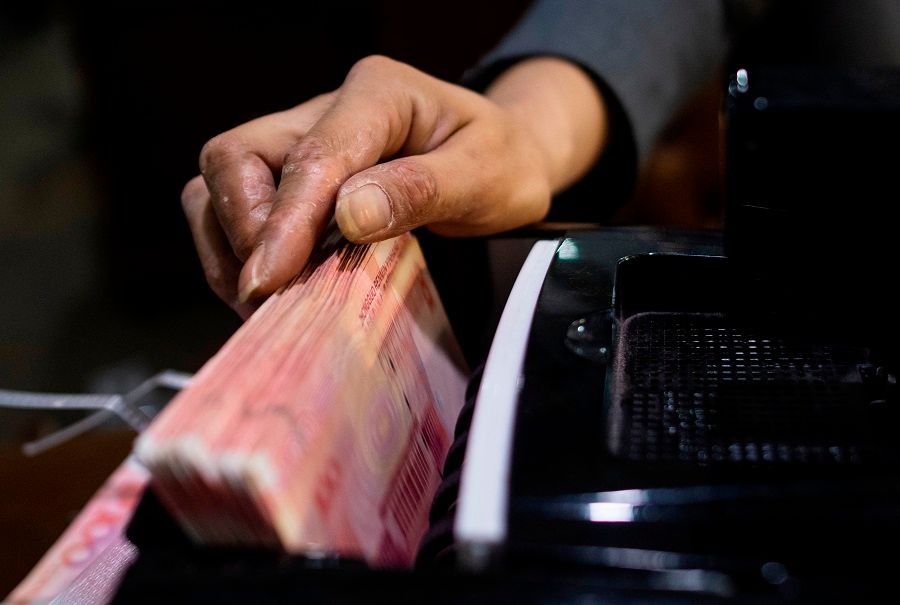
Chinese academics believe that debt problems cannot be wholly blamed on China. Wang Yiwei, professor at Renmin University of China's School of International Studies, and long-time researcher of the BRI, told us that some countries along the route of the BRI already had weak economies to begin with, as illustrated by their high reliance on a single industry like tourism. Moreover, their debt ratios were already very high in the past. It followed that once their pillar industries were severely hit by the pandemic, it would be difficult for them to service their debt.
China would have to face more criticism if an increasing number of countries fall into a debt crisis. - Professor Kevin P. Gallagher, Boston University
Professor Wang further said that some countries may make use of the pandemic as an excuse to deny their debt and demand for continued investments from China. "It is definitely a no-go if a country does not have integrity and frequently reneges on its debt. Besides, China is already facing many problems. It would not leave its domestic problems aside and turn to help these countries instead."
China in diplomatic dilemma over debt relief
Most of the academics we spoke to expressed the view that it is almost inevitable for some poorer countries to breach their contracts with China, leaving the latter trapped in a diplomatic dilemma. If China decides to offer them debt relief, China would have to bear financial losses and withstand pressure from public opinion. On the other hand, if it does not offer debt relief, its international image would, in turn, be damaged.
Professor Kevin P. Gallagher of Boston University's Frederick S. Pardee School of Global Studies told us that China would have to face more criticism if an increasing number of countries fall into a debt crisis.
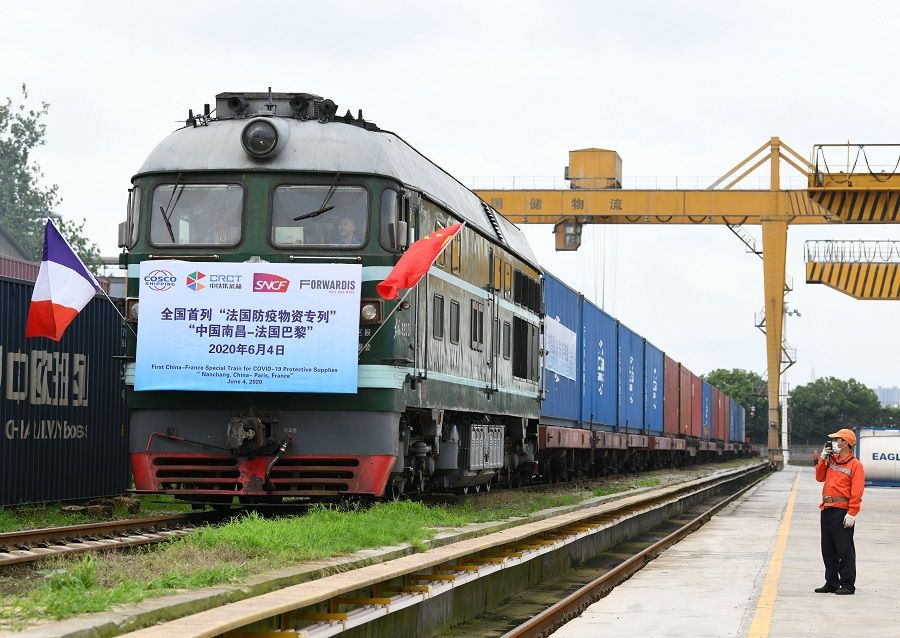
He said, "Although the debt crisis is largely caused by western private creditors, the other narrative is that this is largely China's fault. Mass breaches of contracts have made this originally weak argument seem even more convincing."
China will re-examine the future direction of the BRI
The academics we interviewed said that China will not easily abandon its seven-year-old BRI, despite many challenges ahead. Instead, seizing opportunities presented by the pandemic, it will re-examine the future direction of the BRI.
"...it (BRI) may not be as widely spread as before." - Professor Wang Yiwei, Renmin University of China
Tsang pointed out that problems with the BRI's sustainability and affordability have always been present. They have simply been clearer by the pandemic.
"As a landmark policy proposed by leaders of the Chinese Communist Party, the BRI will not be given up on," he said. "China will make adjustments to improve its sustainability. The globalisation model that the BRI relied upon in its early stages has changed fundamentally as a result of the pandemic. This pushes China to make adjustments to the BRI's initial plans for advancement."
Professor Wang pointed out that the pandemic has dealt a major blow to globalisation, making the world more grid-like, regional, and bilateral. "With global interconnectivity posing higher risks, having multiple nodes and centres of connectivity are the only ways to disperse these risks. This is the same with the BRI - it may not be as widely spread as before."
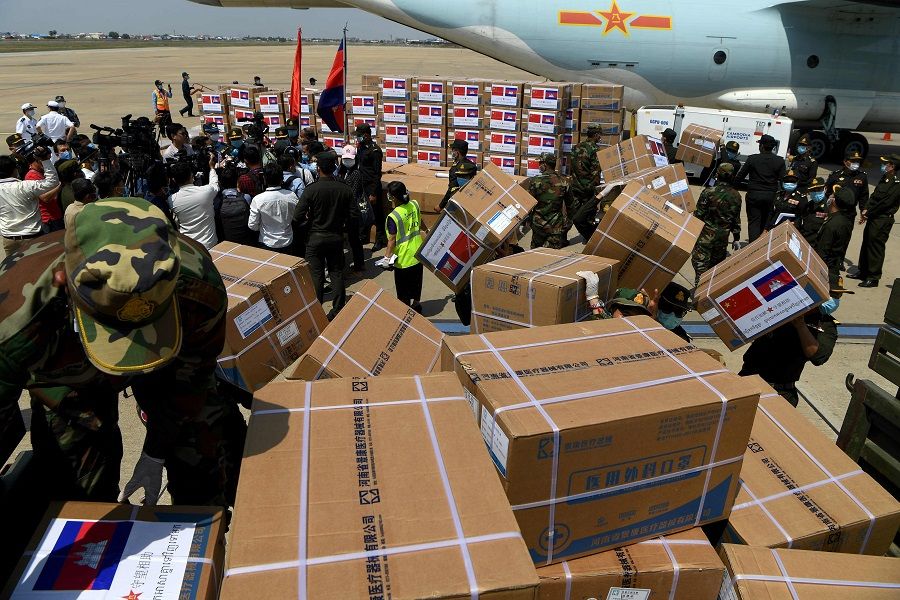
In addition, the focus of the BRI, which has thus far been on large-scale infrastructure will also change. Recently, the concept of a "Health Silk Road", in reference to China's pandemic diplomacy, has been repeatedly mentioned by Chinese officials. Additionally, the concept of a "Digital Silk Road" - covering e-commerce, the Internet of Things, artificial intelligence and so on - has also become more prominent following the pandemic.
"The BRI cannot continue to sell itself on scale and quantity like it did in the past. It should move towards a focus on quality instead." - Associate Professor Cheng Xiaohe, Renmin University of China
Chen Gang, assistant director of the East Asian Institute at the National University of Singapore, agrees. He believes that the BRI will temporarily shrink in scale amid the pandemic. There will also be fewer interconnectivity projects as the BRI's focus shifts to the building of medical facilities and other facilities that benefit local residents instead.
Associate Professor Cheng Xiaohe of the School of International Studies at Renmin University of China told us that even gauging 60% of BRI projects to be affected by the pandemic is still a conservative estimate. He suggested that China could use this opportunity to take stock of the BRI's progress and even discontinue some projects.
"The BRI cannot continue to sell itself on scale and quantity like it did in the past. It should move towards a focus on quality instead. Why not use this opportunity to give up redundant projects and pick the better ones to continue with?" Professor Cheng said.
Since China launched its BRI in 2013, over 100 countries have signed agreements with China to work together on projects such as railways, highways, ports and other infrastructure. According to estimates from Refinitiv, there are over 2,600 projects in the BRI with a combined value of US$3.7 trillion.
Chinese foreign ministry downplays coronavirus impact on BRI
Wang Xiaolong, director-general of the Chinese foreign ministry's Department of International Economic Affairs said at a news briefing on 19 June that inevitably, some BRI projects would be affected under current circumstances. According to a survey by the ministry, about 20% of the projects have been seriously affected, 30-40% have been somewhat affected, and another 40% of projects have seen little adverse impact.
Wang Xiaolong did not give further details but added that the results were better than expected and that the situation was consistent with the impact of other projects in the host countries.
He said that China had not heard of the cancellation of any major projects.
Wang Xiaolong attributed the impact on BRI projects to restrictions on travel and the flow of goods across borders, and local preventive measures to combat Covid-19. However, he is confident that the projects will be back on track and sped up once the pandemic subsides.
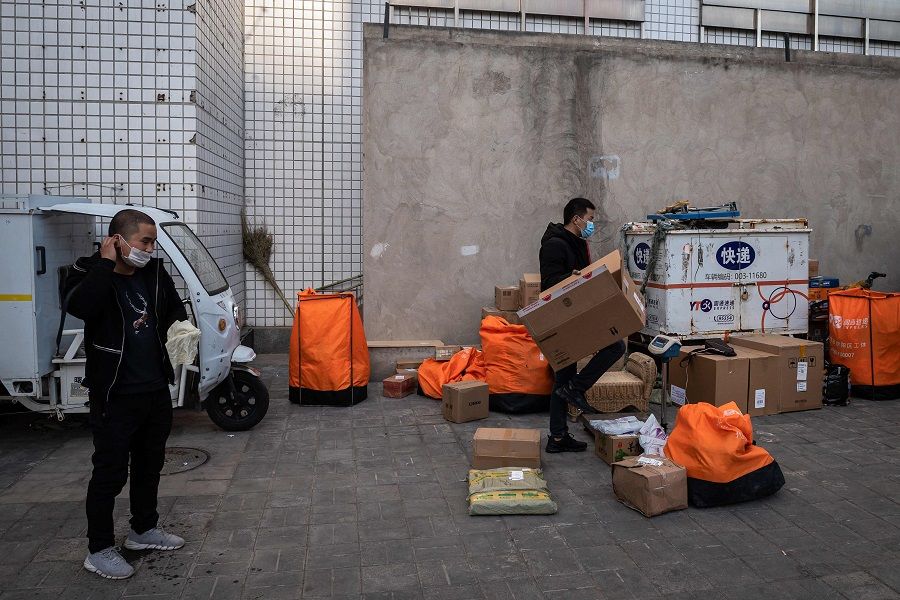
At a high-level video conference on the BRI on 18 June involving foreign ministers or ministerial-level officials from 25 countries, Foreign Minister Wang Yi said that China would prioritise communication and coordination with BRI partners and offer them support.
He said that under China's US$2 billion international assistance programme, China would support affected BRI partners in their efforts to fight Covid-19 and to resume economic and social development. China would also give positive consideration to the needs of BRI partners in the development and application of vaccines, and start discussions with BRI partners as soon as possible on the establishment of fast-track lanes for cross-border flows of people and goods, among other things.
The BRI's future value to the world depends on whether it can successfully adapt to changing demands brought about by the pandemic. In Professor Gallagher's words, while the BRI has come to a major standstill in 2020, at the same time, the Covid-19 pandemic is also an opportunity for China to press the reset button on the BRI.
